Blending Folklore, Drama, and Dazzlingly Detailed Design

Kay Nielsen (1886–1957) was a Danish illustrator known for his intriguing and intricate artwork, which defined the visual language of fairy tales and folklore during the early 20th century’s Golden Age of Illustration.
His legacy is marked by a unique blend of Art Nouveau influences, dramatic storytelling, and technical mastery that continues to inspire artists and designers today.
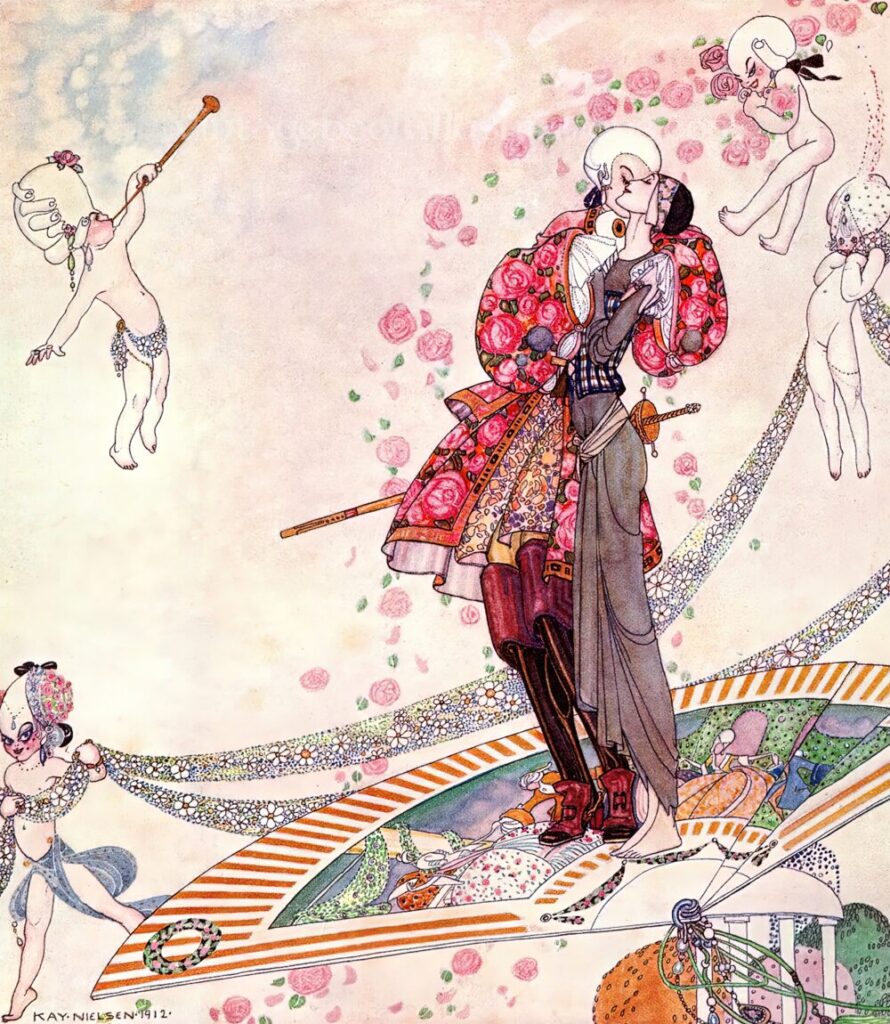
Early Life and Education
Nielsen was born in Copenhagen into a prominent artistic family. His father, Martinus Nielsen, was a theater director, and his mother, Oda Nielsen, was a celebrated actress. He began drawing early, often illustrating folktales as they were read to him. At 17, he moved to Paris to study at the Académie Julian and Académie Colarossi, immersing himself in the flourishing art scene before relocating to England in 1911.
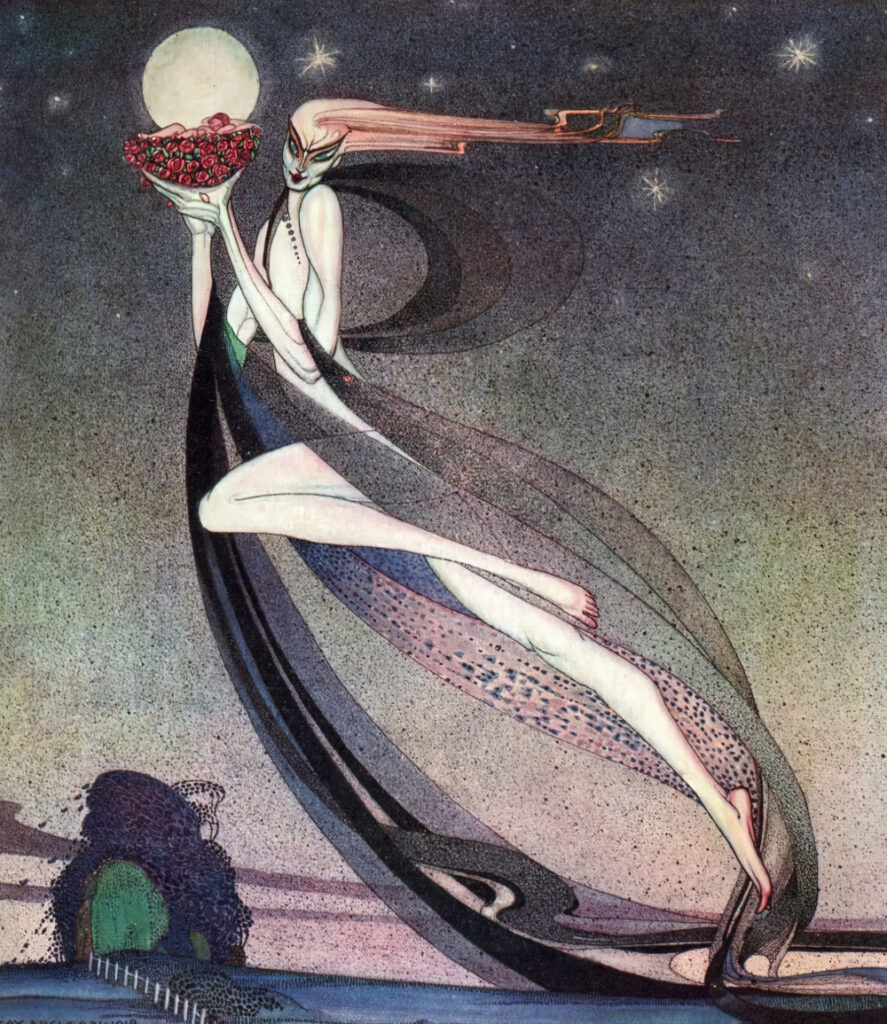
Artistic Style
Nielsen’s art style is instantly recognizable for its:
- Art Nouveau Influence: His illustrations feature elongated figures, flowing garments, and swirling hair, clearly echoing Art Nouveau aesthetics.
- Ornate Detailing: Borders and backgrounds are often highly decorative, filled with intricate patterns and rich ornamentation.
- Dramatic and Melancholic Themes: Unlike many contemporaries, Nielsen emphasized the melancholic, dramatic, and sometimes macabre aspects of fairy tales, exploring themes of love, loss, passion, and death.
- Dreamlike Quality: His use of delicate lines, vibrant colors, and fantastical compositions lends his work a luminous, otherworldly atmosphere.
- Cultural Fusion: Nielsen’s illustrations reflect a deep appreciation for Norse mythology and also incorporate artistic traditions from China, Japan, and Persia, resulting in a unique, cosmopolitan visual vocabulary.
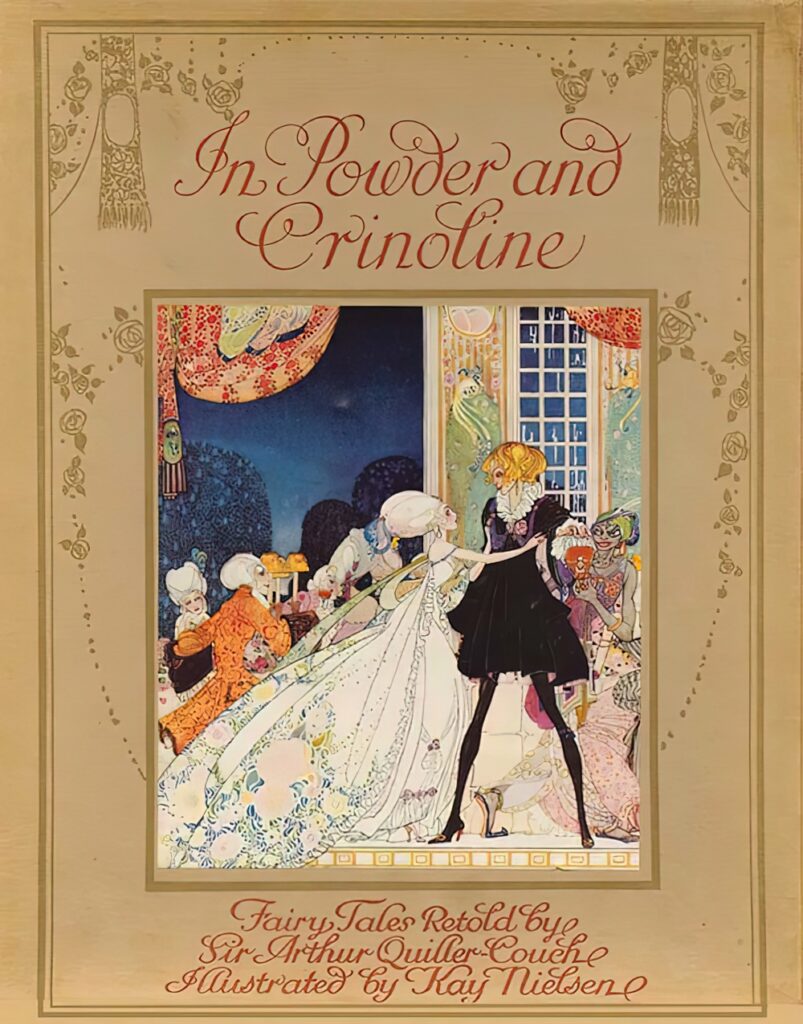
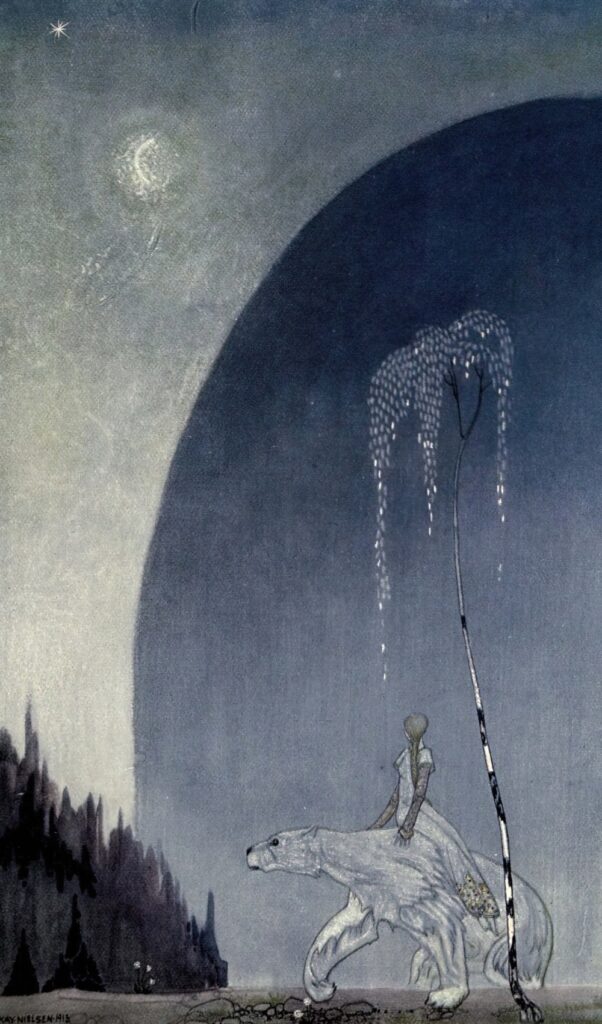
Major Works and Accomplishments
Key Illustrated Books:
- In Powder and Crinoline (1913): Nielsen’s first major commission, illustrating French fairy tales with a Rococo-inspired, pastel and jewel-toned palette.
- East of the Sun and West of the Moon (1914): His masterpiece, featuring Norwegian folktales rendered in elaborate, haunting watercolors, is often cited as one of the greatest achievements in fairy tale illustration.
- The Twelve Dancing Princesses and other classic tales, where his style reached new heights of fantasy and detail.
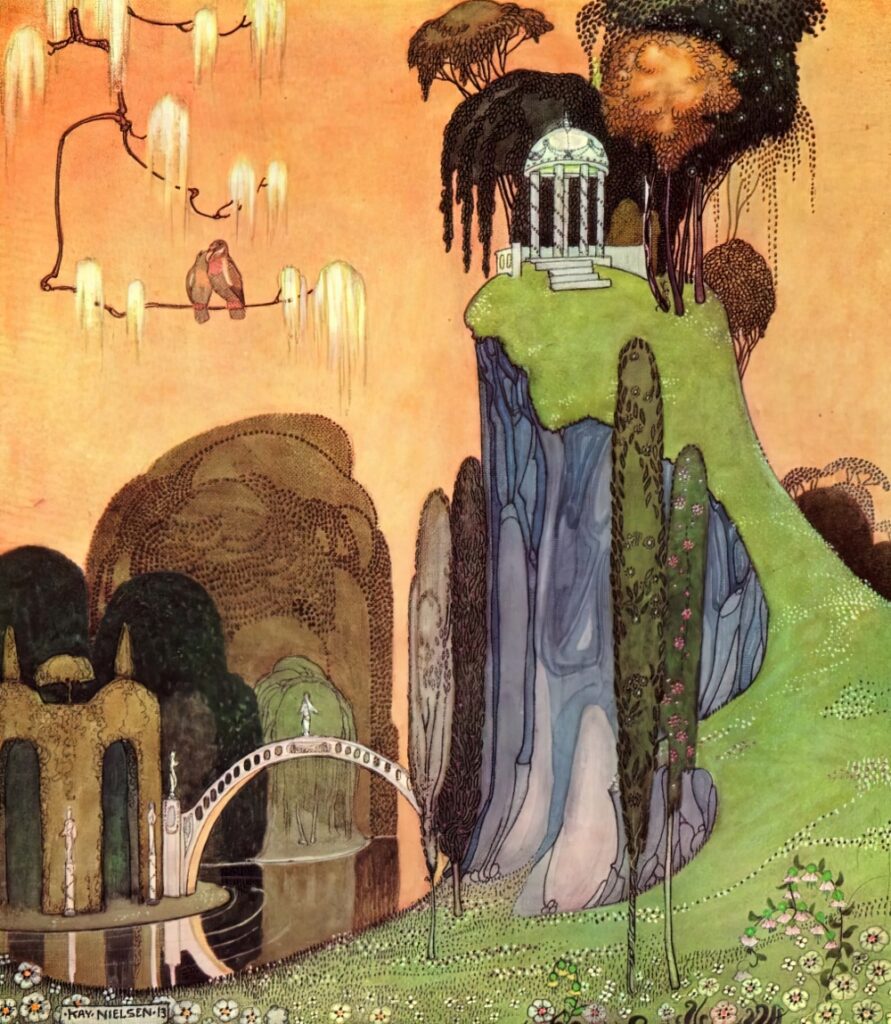
Exhibitions and Recognition:
- Nielsen’s early exhibitions in London and New York brought him international acclaim, with critics praising the “genuine pleasure” of encountering his illustrations.
- His technical process was meticulous: starting with confident graphite outlines, building up layers of watercolor, and finishing with precise ink accents and even scratching the paper for highlights.
Theater and Animation:
- Nielsen also contributed to theater design, creating sets and costumes that mirrored the fantastical quality of his illustrations.
- In 1937, he joined Walt Disney Studios as a concept artist, most notably contributing to the “Night on Bald Mountain” and “Ave Maria” sequences in Fantasia (1940). His visionary style influenced Disney’s approach to animation and fantasy storytelling.
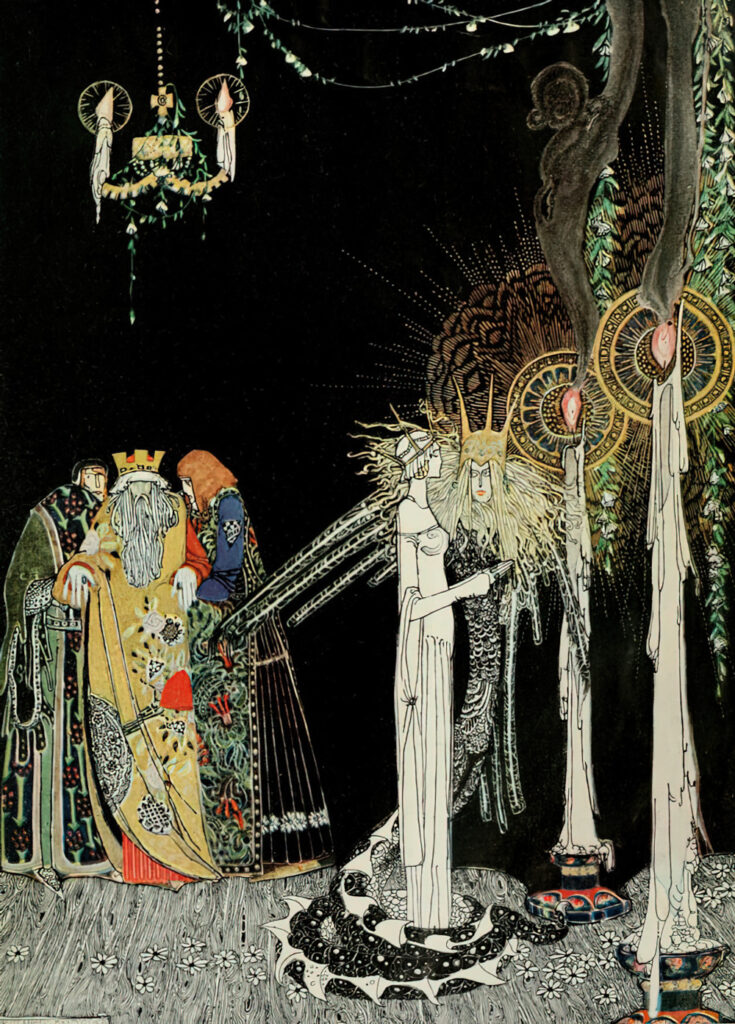
Later Life and Legacy
Despite his early success, the demand for Nielsen’s work waned after World War I as tastes changed and the Golden Age of Illustration faded. He continued to work on commissions, including for Disney, but financial hardship marked his later years. He died in poverty in 1957, his genius largely unrecognized at the time.
Today, Kay Nielsen is celebrated as one of the foremost illustrators of his era. His work is regularly exhibited in major museums. Nielsen’s ability to blend fantasy, melancholy, and exquisite detail ensures his place as a timeless visionary in the world of art and illustration.

